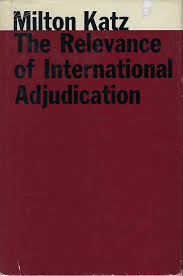

Most ebook files are in PDF format, so you can easily read them using various software such as Foxit Reader or directly on the Google Chrome browser.
Some ebook files are released by publishers in other formats such as .awz, .mobi, .epub, .fb2, etc. You may need to install specific software to read these formats on mobile/PC, such as Calibre.
Please read the tutorial at this link: https://ebookbell.com/faq
We offer FREE conversion to the popular formats you request; however, this may take some time. Therefore, right after payment, please email us, and we will try to provide the service as quickly as possible.
For some exceptional file formats or broken links (if any), please refrain from opening any disputes. Instead, email us first, and we will try to assist within a maximum of 6 hours.
EbookBell Team

4.7
46 reviewsIn this book, one of America’s foremost legal scholars, who has extensive experience in foreign policy, administration, and international law, explores whether and to what extent decisions by international tribunals have been significant, or may yet be significant, for the settlement of international disputes. Milton Katz believes that adjudication as an institution ranks among the great creative achievements of mankind, but it has its limitations—limits both in current practice and in its potential scope.
In presenting his argument, Mr. Katz concentrates upon the period since the end of World War II and deals primarily with international conflict within the experience of the United Nations and the International Court of Justice. He focuses on disputes resulting from the Cold War and on those between established industrial states and newly emerging states or peoples that have not yet attained a full measure of self-government.
In examining what happened and appraising what might have happened; Mr. Katz keeps the reader constantly aware of the many meanings of law; and of the need to sort out the different meanings in order to apply law effectively. Without an understanding of the effective reach and the limits of adjudication; he insists; we will waste opportunities for settling international
…